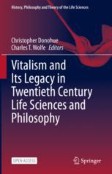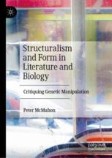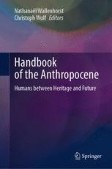Search
Search Results
-
Epigenetics
The word “epigenetics” was first used by the geneticist Conrad Hal Waddington in 1942. Use of the Greek prefix epi (beyond, above) allowed...
-
Chreod
The concept of chreod was introduced in 1957 by the English theoretical biologist Conrad Hal Waddington (cf. Waddington: 1957; Galperin: 2008). From...
-
A ‘Fourth Wave’ of Vitalism in the Mid-20th Century?
In his 1966 John Danz lectures, Francis H. C. Crick decried vitalism in the life sciences. Why did he do this three decades after most historians and...
-
Back to Chromatin: ENCODE and the Dynamic Epigenome
The “Encyclopedia of DNA Elements” (ENCODE) project was launched by the US National Human Genome Research Institute in the aftermath of the Human...
-
The Becoming of Identity: A Process-Ontological View on the Relational Co-existence of Biological Beings
A fundamental issue when thinking about the agency of organisms is the question of their identity. How could we talk of a biological being’s ongoing...
-
Phenotype-first hypotheses, spandrels and early metazoan evolution
Against the neo-Darwinian assumption that genetic factors are the principal source of variation upon which natural selection operates, a...

-
Epigenetic Landscape
The epigenetic landscape is a set of mental images of the process of cellular differentiation in embryological development, introduced by the...
-
Corporate Responses to Community Grievance: Voluntarism and Pathologies of Practice
Grievance landscapes form in rapidly industrialising contexts where social and environmental impacts are inevitable. This paper focuses on the...
-
Plastic Ontogenesis: Memory, Closure, and Habitual Teleology in Development
The aim of this chapter is to shed some light on the fascinating interplay between agency and memory in biological systems and to explore how these...
-
Homeorhesis: envisaging the logic of life trajectories in molecular research on trauma and its effects
What sets someone on a life trajectory? This question is at the heart of studies of 21st-century neurosciences that build on scientific models...
-
Permissive and Instructive Causes
This chapter provides a semantic analysis of ‘permissive’ and ‘instructive cause’. Based on that analysis, I examine James Woodward’s claim that the...
-
Structuralism, Vitalism, and Bioengineering
Genetic manipulation (bioengineering) is implicit to the current paradigm of modern biology. Concerns raised about the technology have focused...
-
“A Single and Indivisible Principle of Unity”: On Growth and Form in Context
D’Arcy Thompson’s On Growth and Form is one of the key works at the intersection of science and the imagination. This introductory essay explores the...
-
Review of Guilherme Messas’ ‘The Existential structure of substance misuse: A psychopathological study’
Guilherme Messas is a Brazilian psychiatrist, founding member of the Brazilian Society for Phenomeno-Structural Psychopathology and author of many...
-
The Multi-Causal Basis of Developmental Potential Construction
In this article we analyse the issue of what accounts for developmental potential, i.e., the possible phenotypes a develo** organism can manifest...

-
Phenotype then Gene
The theory of evolution of novelty by genetic mutation and reproductive isolation is challenged by concepts such as environmentally triggered traits,...
-
Epigenetic this, epigenetic that: comparing two digital humanities methods for analyzing a slippery scientific term
We compared two digital humanities methods in the analysis of a contested scientific term. “Epigenetics” is as enigmatic as it is popular. Some...

-
Unknotting reciprocal causation between organism and environment
In recent years, biologists and philosophers of science have argued that evolutionary theory should incorporate more seriously the idea of...

-
Living
Our era is the era of life. Indeed, the Anthropocene, which now refers to the human footprint on Earth’s future, reveals the limits and conditions of...
-
Revisiting N.I. Vavilov’s “The Law of Homologous Series in Variation” (1922)
We discuss N. I. Vavilov’s 1922 landmark publication, “The Law of Homologous Series in Variation,” and highlight its salient points. Vavilov drew...

